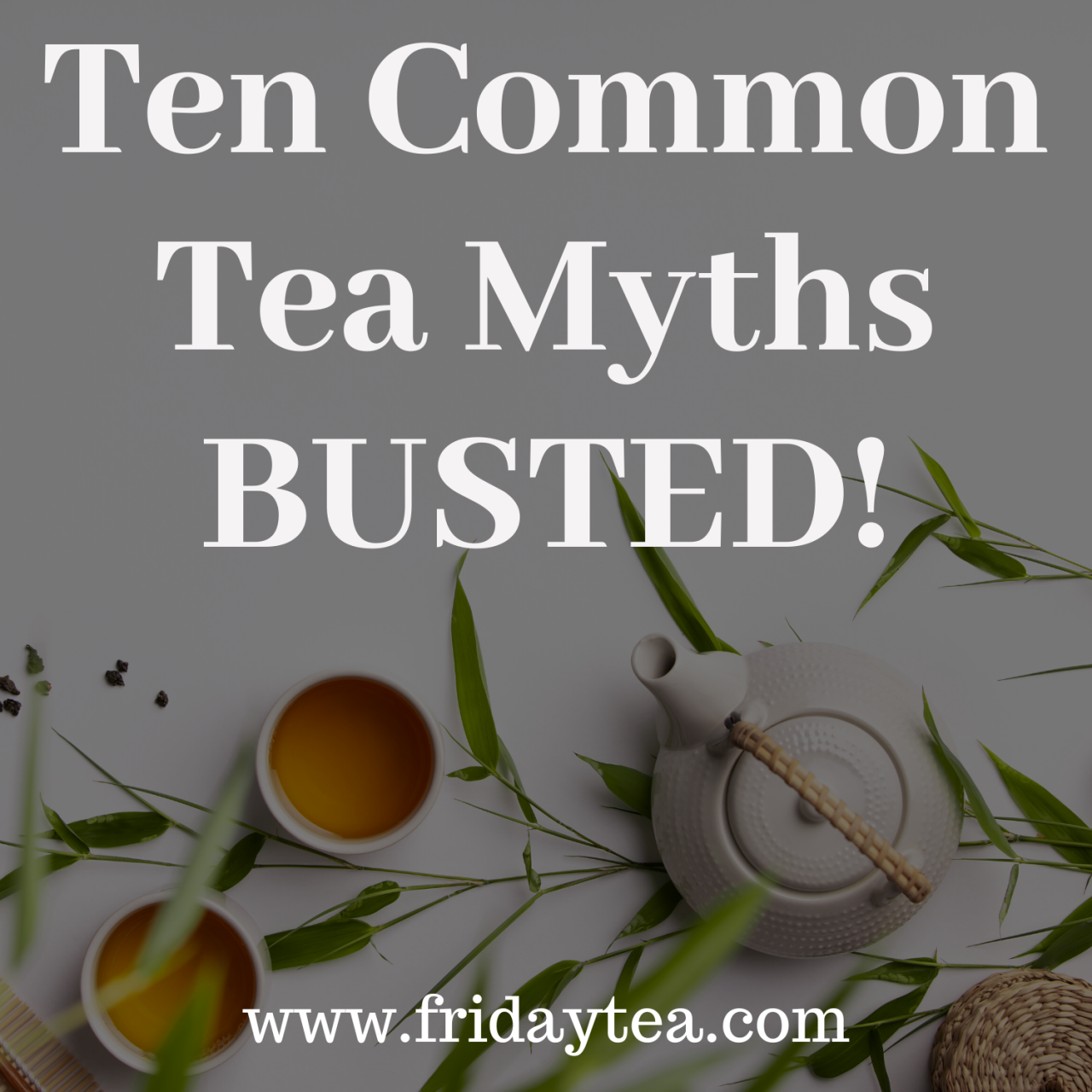
The Biggest Tea Myths Debunked: Setting the Record Straight
The Biggest Tea Myths Debunked: Setting the Record Straight. Tea, a beloved beverage enjoyed worldwide, is often shrouded in misconceptions. From its caffeine content to its health benefits, many assumptions about tea are simply not true. In this blog post, we’ll delve into the most common tea myths and separate fact from fiction, providing you with a clear understanding of this wonderful beverage.
From the amount of caffeine in a cup to the supposed ability to cure cancer, tea has become a subject of numerous myths. We’ll explore the scientific evidence behind these claims and uncover the truth about tea’s impact on our health and well-being.
The Myth of Tea’s Caffeine Content
Tea is often perceived as a calming beverage, a gentle alternative to coffee’s stimulating jolt. However, the truth about tea’s caffeine content is a bit more nuanced. While it’s true that tea generally contains less caffeine than coffee, it’s not always a guaranteed “low-caffeine” option.
Caffeine Content in Different Types of Tea
The caffeine content of tea varies depending on the type of tea, the brewing time, and the amount of tea leaves used. Here’s a breakdown of caffeine levels in different types of tea:
- Black tea:Black tea has the highest caffeine content among the common tea varieties. A typical 8-ounce cup of black tea can contain anywhere from 40 to 70 milligrams of caffeine.
- Green tea:Green tea contains less caffeine than black tea, with a typical 8-ounce cup containing about 25 to 45 milligrams of caffeine.
- White tea:White tea has the lowest caffeine content among the common tea varieties. A typical 8-ounce cup of white tea contains about 15 to 30 milligrams of caffeine.
Caffeine Content in Tea Compared to Other Beverages
To put tea’s caffeine content into perspective, let’s compare it to other popular beverages:
| Beverage | Caffeine Content (mg per 8 oz) |
|---|---|
| Coffee | 80-100 |
| Black Tea | 40-70 |
| Green Tea | 25-45 |
| White Tea | 15-30 |
| Soda | 30-40 |
| Energy Drinks | 80-160 |
It’s important to note that these are just general guidelines, and the actual caffeine content can vary depending on the specific brand and preparation method.
The Myth of Tea’s Health Benefits: The Biggest Tea Myths Debunked
Tea has been lauded for its health benefits for centuries, with claims ranging from weight loss to cancer prevention. While tea does offer some potential health benefits, many of these claims are exaggerated or lack strong scientific backing. Let’s delve into the truth behind the hype.
Misconceptions about Tea’s Health Benefits
The notion that tea can magically cure all ailments is a common misconception. Many people believe that drinking tea regularly can lead to significant weight loss, prevent cancer, or even cure chronic diseases. While tea may contribute to a healthy lifestyle, it’s crucial to understand that it’s not a miracle cure.
Scientific Evidence Supporting and Refuting Tea’s Health Benefits
Scientific research has shed light on the potential benefits and limitations of tea consumption.
Evidence Supporting Tea’s Benefits
- Antioxidant Properties:Tea, especially green tea, is rich in antioxidants, particularly polyphenols like catechins. These antioxidants can help protect cells from damage caused by free radicals, which are unstable molecules that contribute to aging and disease. Studies have shown that tea consumption may reduce the risk of certain types of cancer, heart disease, and neurodegenerative diseases.
It’s amazing how many misconceptions surround something as simple as tea. Did you know that green tea doesn’t actually burn fat, or that black tea doesn’t magically cure a cold? These are just a few of the myths that have been debunked, but the trend of misinformation continues.
It seems like the same thing is happening in the economy, where consumers are shifting their focus away from buying material goods, like that new TV, and towards experiences and services. This trend is well documented in a recent article on epic goods buying spree wanes as consumers ramp up services spending , highlighting a shift in consumer behavior.
Just like with tea, it’s important to separate fact from fiction when it comes to understanding economic trends. So, next time you hear a tea myth, take it with a grain of salt, and maybe even do a little research to see if it holds up!
- Heart Health:Tea consumption has been linked to improved heart health. Some studies suggest that tea may help lower blood pressure, improve cholesterol levels, and reduce the risk of blood clots. The antioxidants in tea may contribute to these benefits.
- Mental Health:Tea contains L-theanine, an amino acid that promotes relaxation and focus. Some studies suggest that tea consumption may improve mood, reduce stress, and enhance cognitive function.
Evidence Refuting Exaggerated Claims
- Weight Loss:While some studies suggest that tea may have a modest effect on weight loss, it’s not a magic bullet. Tea alone is unlikely to lead to significant weight loss without dietary changes and exercise.
- Cancer Prevention:While tea’s antioxidants may offer some protection against cancer, there is no definitive evidence that tea can prevent cancer. It’s important to note that a healthy lifestyle, including a balanced diet and regular exercise, plays a significant role in cancer prevention.
- Cure for Chronic Diseases:Tea is not a cure for chronic diseases like diabetes or arthritis. While tea may offer some benefits for managing these conditions, it should not be considered a substitute for medical treatment.
Potential Benefits of Tea
While many claims about tea’s health benefits are exaggerated, there is evidence to suggest that tea consumption can offer some potential benefits.
Antioxidant Properties
Tea is a rich source of antioxidants, particularly polyphenols like catechins. These antioxidants can help protect cells from damage caused by free radicals, which are unstable molecules that contribute to aging and disease.
Impact on Heart Health
Some studies suggest that tea consumption may help lower blood pressure, improve cholesterol levels, and reduce the risk of blood clots. The antioxidants in tea may contribute to these benefits.
Mental Health Benefits
Tea contains L-theanine, an amino acid that promotes relaxation and focus. Some studies suggest that tea consumption may improve mood, reduce stress, and enhance cognitive function.
The Myth of Tea’s Preparation

The art of brewing tea is often shrouded in mystery, with countless myths and misconceptions surrounding the perfect cup. From the ideal water temperature to the optimal steeping time, many believe that achieving the best flavor and health benefits requires a strict set of rules.
However, the truth is that tea preparation is more flexible and forgiving than you might think.
The Importance of Water Temperature
Water temperature plays a crucial role in tea brewing, as it affects the extraction of flavor compounds and antioxidants. While many believe that all teas should be brewed with boiling water, this is not always the case. The ideal water temperature varies depending on the type of tea.
- Black Tea:Black tea, with its fully oxidized leaves, benefits from boiling water (212°F or 100°C). This temperature allows for the maximum extraction of flavor and caffeine.
- Green Tea:Green tea, with its minimally oxidized leaves, is best brewed with slightly cooler water, around 170-180°F (77-82°C). This temperature helps to preserve the delicate flavor and antioxidants of green tea.
- White Tea:White tea, the least processed of all teas, is extremely sensitive to heat. It should be brewed with water that is just below boiling, around 160-170°F (71-77°C). This gentle temperature helps to retain the delicate flavor and subtle sweetness of white tea.
- Herbal Teas:Herbal teas, which are not technically teas but rather infusions of herbs, flowers, and spices, can be brewed with boiling water. However, some herbal teas, like chamomile and peppermint, may benefit from slightly cooler water to preserve their delicate aromas.
So, you’ve heard that tea can’t be brewed more than once, right? Or that green tea is the only one that’s healthy? Well, it’s time to ditch those myths! There’s a whole world of tea out there, and it’s all good for you.
Speaking of myths, have you seen the article analysis sorry but for you oil trades at 250 a barrel ? It’s a wild ride through the world of energy prices. Anyway, back to tea – let’s explore the real benefits and how to brew the perfect cup!
The Role of Steeping Time
Steeping time is another crucial factor in tea brewing. Over-steeping can result in a bitter and astringent cup, while under-steeping can leave the tea weak and flavorless.
- Black Tea:Black tea typically requires 3-5 minutes of steeping time. The longer the steeping time, the stronger the flavor and caffeine content.
- Green Tea:Green tea is more delicate and requires a shorter steeping time, typically 1-3 minutes. Over-steeping can result in a bitter and astringent cup.
- White Tea:White tea is extremely delicate and requires the shortest steeping time, typically 1-2 minutes. Over-steeping can quickly ruin the flavor and delicate aroma of white tea.
- Herbal Teas:Herbal teas have a wider range of steeping times, depending on the specific blend. Generally, herbal teas require 5-10 minutes of steeping time.
Tips for Optimizing Tea Flavor
- Use Fresh Water:Always use fresh, filtered water for brewing tea. Water that has been boiled multiple times can contain impurities that affect the flavor of the tea.
- Use the Right Teapot:The type of teapot you use can also affect the flavor of the tea. Glass or ceramic teapots are ideal for most teas, as they do not impart any flavor to the tea.
- Warm the Teapot:Warming the teapot with hot water before adding the tea leaves helps to prevent the water from cooling down too quickly and ensures a more consistent brewing temperature.
- Use the Right Amount of Tea:The amount of tea you use will also affect the strength and flavor of the tea. A general guideline is to use 1 teaspoon of loose leaf tea per 8 ounces of water.
- Steep Properly:Steep the tea for the recommended time and then remove the tea leaves from the water. Over-steeping can result in a bitter and astringent cup.
The Myth of Tea’s Effects on Sleep

Many people believe that drinking tea, especially before bed, can interfere with their sleep. This misconception often stems from the common knowledge that tea contains caffeine, a stimulant known to disrupt sleep patterns. However, the impact of tea on sleep is more nuanced than simply attributing it to caffeine content.
So, you’re probably wondering if those “biggest tea myths debunked” articles are actually true. I mean, we’ve all seen those crazy claims about tea, right? Well, it turns out that even with all the drama surrounding Elon Musk’s Twitter takeover, Twitter remains committed to the deal , despite his antics.
Maybe we should just focus on the facts and enjoy a nice cup of tea instead of getting caught up in all the internet hype. After all, tea is definitely not a gateway drug, no matter what some people say!
Caffeine Content and Sleep, The biggest tea myths debunked
The amount of caffeine in tea varies depending on the type of tea and how it is brewed. For instance, black tea typically contains more caffeine than green tea, and herbal teas are naturally caffeine-free. The time of consumption also plays a crucial role in how caffeine affects sleep.
- Consuming caffeine several hours before bedtime allows the body ample time to metabolize it, minimizing its impact on sleep.
- However, ingesting caffeine close to bedtime can interfere with sleep onset and duration, as it can disrupt the natural production of melatonin, a hormone that regulates sleep.
“Caffeine can take up to 6 hours to fully metabolize in the body.”
Tea’s Impact on Sleep
While caffeine is a factor, it’s important to remember that tea also contains other compounds that can influence sleep. For example, some types of tea, like chamomile and lavender tea, are known for their calming and relaxing properties. These teas can actually promote sleep by reducing anxiety and stress, which are common culprits of insomnia.
Tips for Enjoying Tea Without Disrupting Sleep
To enjoy tea without disrupting sleep, consider the following tips:
- Opt for caffeine-free herbal teas, such as chamomile, lavender, or valerian root tea, in the evening.
- If you prefer caffeinated teas, limit your intake in the afternoon and evening.
- Brew your tea with less tea leaves to reduce the caffeine content.
- Avoid drinking tea too close to bedtime.
The Myth of Tea’s Toxicity
Tea, a beloved beverage enjoyed worldwide, has long been associated with health benefits. However, certain misconceptions surrounding its safety have led to unfounded concerns about its potential toxicity. This article aims to debunk the myth of tea’s toxicity, providing a clear understanding of its safety and potential risks.
Tea’s Potential for Liver Damage
The notion that tea can cause liver damage is a common misconception that has been perpetuated by anecdotal evidence and misinformation. While some studies have explored the effects of excessive green tea consumption on liver function, these studies have been inconclusive and do not provide sufficient evidence to support the claim that tea causes liver damage.
The liver is a robust organ capable of detoxifying various substances, and moderate tea consumption is generally considered safe.
The Myth of Tea Addiction
Another common misconception is that tea can be addictive. While tea contains caffeine, a stimulant that can lead to dependence, the amount of caffeine in tea is typically lower than in coffee or energy drinks. Furthermore, tea’s calming and relaxing effects can actually help reduce stress and anxiety, which are often associated with addiction.
The risk of developing a tea addiction is minimal, especially when consumed in moderation.
The Safety of Tea Consumption
Tea consumption is generally considered safe when consumed in moderation. However, it’s important to be aware of potential risks, such as caffeine overdose and the effects of tannins.
Caffeine Overdose
Caffeine is a stimulant found in tea, coffee, and other beverages. While moderate caffeine intake is generally safe, excessive consumption can lead to caffeine overdose, characterized by symptoms such as anxiety, insomnia, headaches, and tremors. To avoid caffeine overdose, it’s recommended to limit your daily caffeine intake to 400 milligrams, which is equivalent to about four cups of brewed tea.
Tannins
Tannins are naturally occurring compounds found in tea that can contribute to its astringent taste. While tannins are generally safe, excessive consumption can lead to digestive issues, such as constipation and bloating. In some individuals, tannins can also interfere with iron absorption.
Guidelines for Responsible Tea Consumption
To enjoy the benefits of tea while minimizing potential risks, it’s essential to follow these guidelines:
- Moderate Consumption:Limit your daily intake of tea to 4-5 cups.
- Choose High-Quality Tea:Opt for loose-leaf tea from reputable sources to ensure quality and minimize potential contaminants.
- Steep Properly:Follow the recommended steeping time for each type of tea to avoid over-extraction of tannins.
- Listen to Your Body:If you experience any adverse effects after consuming tea, such as digestive issues or insomnia, reduce your intake or avoid it altogether.
- Consult a Healthcare Professional:If you have any underlying health conditions or are taking medications, consult your doctor before consuming tea.
End of Discussion
As we’ve debunked the biggest tea myths, remember that tea can be a healthy and enjoyable part of a balanced lifestyle. By understanding the facts and avoiding misinformation, you can appreciate the true potential of this versatile beverage. So, brew yourself a cup, relax, and enjoy the real benefits of tea!

